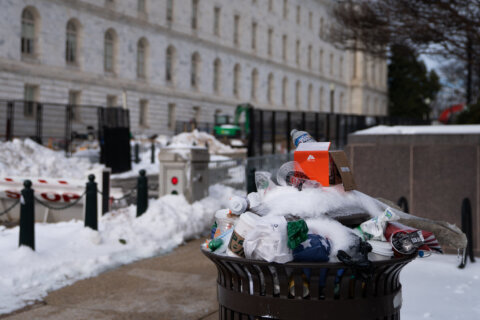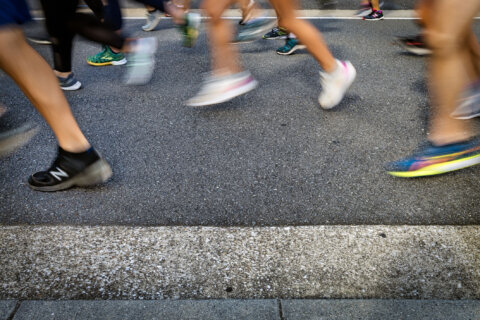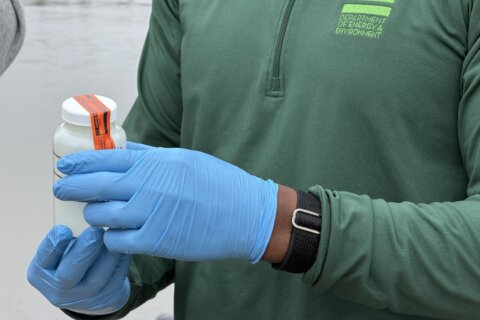
Homes and businesses in parts of Northeast D.C. that have been under a boil water advisory since Thursday morning will need to keep boiling their water over the weekend, because tests haven’t yet ruled out possible contamination.
DC Water issued the boil advisory as a precaution after a temporary loss of water pressure on Aug. 4 may have made it possible for bacteria or other disease-causing organisms to enter the water through cracks, breaks or joints in the distribution system.
On Thursday, DC Water took water samples from the affected area, the utility said in a release Friday. The next day, tests showed that while there was no E.coli in the water, one of the 10 samples did test positive for coliform bacteria.
Coliform bacteria is naturally present in the environment and is used as an indicator that other, potentially harmful, bacteria may be present.
DC Water said it will conduct another round of sampling Saturday morning. The boil advisory won’t be lifted until tests show two consecutive days of negative bacteria samples.
Here’s the culprit. This is the hole in the 36″ water line that led to the boil water advisory. We are pleased to report crews were able to complete repairs overnight. The steel main at 13th and Spring Rd NW was installed in 1936. pic.twitter.com/n0JC9tg2vP
— DC Water (@dcwater) August 6, 2021
The affected area includes the Northeast neighborhoods of Edgewood, Brookland, Brentwood, Fort Lincoln, Langdon, Riggs Park, Woodridge, Queens Chapel, Michigan Park and North Michigan Park.
DC Water has an interactive map where you can see the properties that have been affected.
Customers in these areas should:
- Discard any beverages and ice made before and during the advisory
- Run cold water until clear (if discolored) prior to boiling
- Run cold water for two minutes if known sources of lead are present prior to boiling
- Bring water to a rolling boil for one minute and let it cool
- Store cooled water in a clean, covered container.
Cooled, boiled water or bottled water should be used for:
- Drinking
- Brushing teeth
- Preparing and cooking food
- Washing fruits and vegetables
- Preparing infant formula
- Making ice
- Giving water to pets.
DC Water is also advising customers not to use home filtering devices in place of boiled or bottled water.
If anyone is experiencing symptoms related to bacteria-related viruses and parasites, such as diarrhea, cramps, nausea or headaches, DC Water asks that you seek medical attention.
For more information, customers can use the DC Water website or call the 24-hour command center at 202-612-3400.








